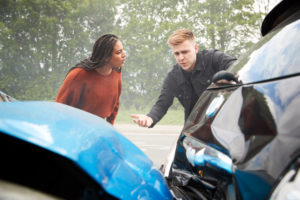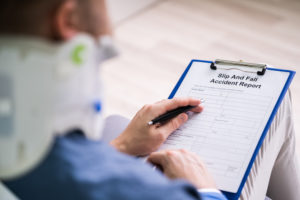What to Do During a Traffic Stop
Most drivers will deal with at least one traffic stop in their lives. Common mistakes such as speeding, a broken taillight or rolling through a stop sign could lead to an officer making a traffic stop in Virginia. The way you conduct yourself during a traffic stop could not only convince the officer to let you off with just a warning, but it could also prevent the officer from bringing additional charges against you – such as resisting arrest or assaulting an officer. Learn what to do and what not to do at a traffic stop to safeguard your rights.
Pull Over as Soon as Possible
Avoid a charge such as evading a police officer by pulling over as soon as you safely can after noticing a police officer behind you with his or her lights on. The officer will want you to stop if the police car has its emergency lights flashing or siren blaring. In these situations, pull to the righthand side of the road as quickly as you can.
If it is unsafe for you to pull off where you are, continue to the nearest shoulder or outlet to pull over. You may put your hazards on to show the officer you intend to stop if you need to drive farther to pull over. Use a turn signal if you need to merge lanes before pulling to the right. Pullover and turn off your engine.
For a Free Legal Consultation
Call The Personal Injury Lawyer Hotline.
804-250-5050
Place Your Hands on the Steering Wheel
Do not take actions such as removing your seat belt, taking out your driver’s license or reaching into your glove box for your vehicle registration. The officer may mistake this for you reaching for a weapon. Instead, sit with both hands on the steering wheel and wait for the officer to direct you to do otherwise. As a courtesy, turn your interior lights on if it is dark outside to help the officer see inside your vehicle. Never exit your vehicle unless the officer instructs you to do so.
Let the Heavy Hitters® Take On Your Case 804-250-5050
Listen and Obey
The best way to get through a traffic stop as quickly and painlessly as possible is to listen to the officer, be polite and obey his or her commands. Answer with “sir” or “ma’am” to show you have respect for the officer. Avoid sounding angry, confrontational or insulting, as this could lead to more trouble than you normally might have faced. Do what the officer says to show you are cooperating. Otherwise, a simple traffic stop could escalate into a criminal charge such as resisting arrest or obstructing justice.
Central Virginia's Top Rated Personal
Injury Lawyers 804-250-5050
Do Not Incriminate Yourself
You want to be as honest and upfront as possible with an officer, but do not offer up any information he or she does not request. Do not start talking about how you only had one glass of wine at dinner, for example, if an officer pulls you over for speeding. Only answer the questions asked, and with as little detail as possible. Saying too much could unintentionally incriminate you or give the officer reason to suspect an additional crime.
Let Us Be The Heavy Hitters® For Your Case Speak To An Attorney Now
Know Your Rights
While it is in your best interests to cooperate with a police officer, do not do so to the point of infringing upon your rights. For example, you have the right to be free from unlawful searches and seizures. You do not have to give a police officer permission to search your vehicle during a traffic stop. The officer may only do so without your permission if the officer has reasonable cause to suspect he or she will find evidence of a crime.
You also have the right to remain silent. Other than giving the officer your name, you do not have to answer any questions until you have an attorney present. You also have the right to challenge the legality of any traffic stop in Virginia. You may attend the court date listed on your traffic ticket to contest the stop. Hiring a Richmond traffic injury attorney after your traffic stop could help you protect your rights and fight a ticket if you have grounds to do so.
The Pendleton Law Team Is Here For You 804-250-5050



